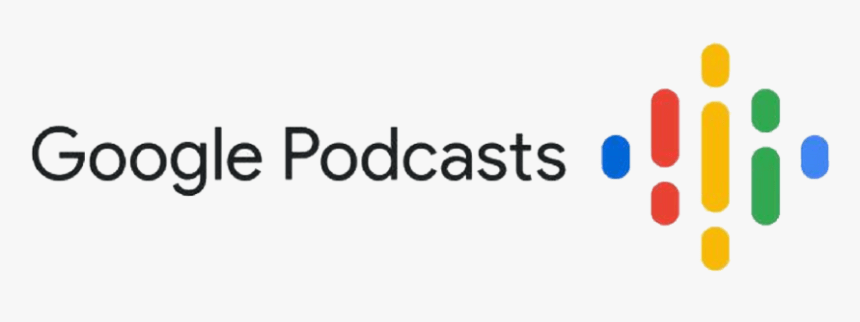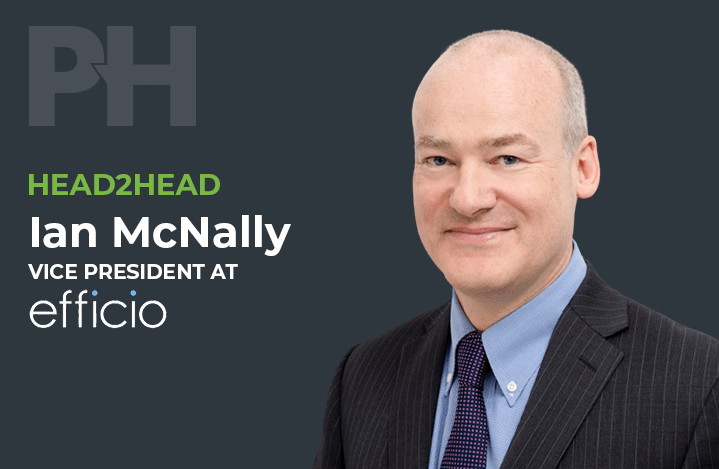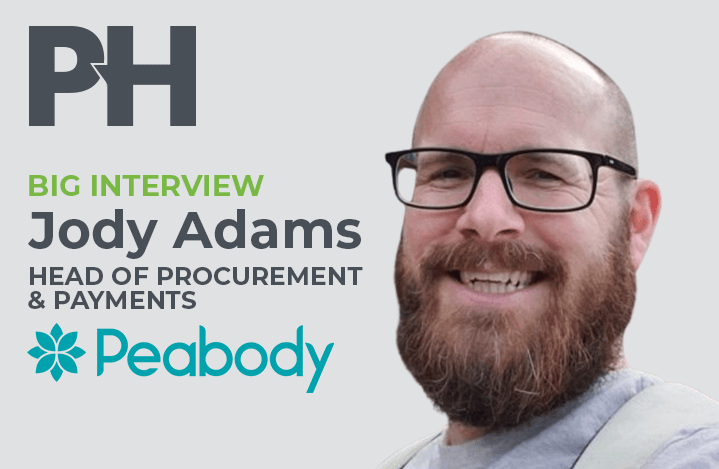You can listen to their conversation via the links below, or watch Procurement Heads‘ full video of their conversation on YouTube.


How did you get into procurement?
I would love to say I planned it, but I didn’t. I graduated with an engineering degree and went on to work in manufacturing and materials requirements planning. I had an inspiring manager – a former consultant who set up a project with the objective of taking cost and waste out of the manufacturing process. With his encouragement (he also encouraged me to get my MBA), I started to focus on supply chain and operations improvements and, from there, I moved into operations consulting. As opportunities came up for project work. they were increasingly procurement-related. so I shifted my focus. It’s an area that I find super interesting, and I’ve been fully immersed ever since.
What are the roles of procurement and how do you split the function out?
As a consulting firm, we don’t have a typical procurement department, per se; however, we all do procurement, and our client work always contains some element of it. Much depends on our clients, their situations, and how they seek support. Some clients want simple cost reductions, while others need assistance with a complete procurement transformation. Others might seek assistance to secure on-time product or service delivery, and we help them to identify and implement improvement opportunities. Frequently, it is a mix of all three, ultimately helping their procurement functions deliver value to their businesses.
How big is Efficio and how would you describe what you do?
Efficio has grown to almost 500 people, with 60-70% of staff based in its London headquarters and with growing operations in Europe, North America, and the Middle East that enable us to operate globally. We work with clients across a vast variety of sectors and industries to help them address all aspects of procurement issues and challenges to help them identify, deliver, and sustain cost advantages. I have been with Efficio for 16 years, and my activities have been highly varied, working with companies around the world and across a multitude of sectors and industries. Having this exposure and experience enables us to introduce practices and promote innovative approaches to support companies around the globe, and that certainly keeps things interesting!
What challenges are you currently facing giving the current situation around the world?
Covid is quite likely the word of the year – and it has driven unprecedented and unexpected change. At the outset of Covid, companies were very worried about continuity, cash, profit, and keeping people employed. That quickly evolved to an increasing concern about supply chains. Our focus has flexed to help clients address this complex challenge.
The pandemic also hugely accelerated the world to digital-first communications. Like most companies, we have had to get used to changes in how our employees work, and remote working has become our norm. We have also had to work harder, as businesses have been more cautious and hesitant to take on new employees and external consultants. Given these challenges, there has been greater emphasis on being able to give our clients and employees the confidence that we can help them deliver our services just as expertly, remotely. There is certainly value in face-to-face meetings and discussions that is not easily replicated on a Zoom meeting. However, the flip side is that our productivity has improved in many ways, as we have been able to hold multiple meetings in a day, engaging multiple companies without the need to travel – which in turn reduces our carbon footprint.
What are you most passionate about procurement?
I think there is always the element of getting the best cost for a product or service for a client. However, I get excited when I see people doing something different and when it changes the behaviour of the user – something that delivers extra value, like driving change in the supply market or finding a way to source something with a different solution that provides better service. That is when procurement is really adding value to their stakeholders and their business. The commercial part of the business can then help drive both total cost and create service and innovation advantages to the customer.
What would you say is a key focus area?
I think cost reduction has always been a key focus, but also increasingly important is the ability to be agile and respond and work out a way to deliver on a requirement and say “yes” to that. Another aspect that is becoming more and more important is sustainability – both in the way we work as companies, as well as how we can protect and minimise our impact on the environment while making a profit. Covid has taught us we can do things differently and in a more sustainable way. If I think about my own situation, I was travelling every week and taking flights regularly; since March, I haven’t taken a single flight, and not travelling hasn’t been a barrier. Of course, that is just one element of sustainability – the increasing pressure from consumers, regulators, and society in general is forcing many companies to do things differently and set a more conscious and visible sustainability approach. This will continue to be an increasing focus for Efficio.
What do you look for when you are hiring people?
There are the basics, and then there are the things we look for over and above that. The basics include someone who is smart, who is able to work with others, and has an interest and a passion for procurement. This is vital. The other aspect that is probably more important is having a spark, being passionate about something, and the ability to engage with and relate to people. We talk a lot about delivering services in a very fact-based way. However, the truth is while that is important, we make things different by fully engaging with our clients and their employees and helping them to be open to new ways of doing things. If you don’t have the ability to connect on a personal level, then there is a problem. I was once interviewing someone who was working through a case study that they found very challenging, which would generally lead to a decision not to hire them. However, what was very clear was that this candidate had a real ability to engage with us and keep us interested in what he was saying. He was concise and had a passion for what he was talking about, and it just worked really well. Any concern we had over his more practical and technical skills were more than balanced by the genuine people-skills that we saw. That person is now a really effective consultant.
How important would you say soft skills are within a consulting role?
It is absolutely essential. People move on from when they are learning to follow a process, but the next bit of growth comes from teaching people how to change. I often say you won’t win an argument by being right or shouting louder, you will win the argument by taking people with you to recognise the issue and making them realise that actually, a different way can be a better way. I think that the ability to engage is almost more important than the ability to ‘run the numbers’. The ability to analyse a situation will help you understand, but it won’t help you to advance to become a change agent.
What would you say is the biggest achievement in your procurement career so far?
It is probably too easy to say reaching Vice President with a consulting firm. I certainly feel proud of that, and it is indeed an accomplishment. However, I think the backstory is probably more important. I had the opportunity to lead a large-scale project for a client with operations in the UK and the US. The Efficio team was highly capable, comprised of individuals with significant experience in running complex categories and working with heavy-hitting and senior stakeholders, as was our client’s team. Success in leading this highly functional and experienced team lay in the fine balance of demonstrating leadership without dominating or controlling the dialogue. I worked closely with the programme sponsor to keep the wider senior stakeholder group supportive and on-board, allowing the team to advance and deliver the benefits. My role was not to drive team members – I quickly learned that they had the drive and the skills. Instead, I had to manage the environment to enable them. I think it was the greatest learning experience and biggest success that led me to achieve VP level.
What are the main responsibilities as a VP at Efficio compared with working at a delivery level?
There are two key responsibilities: one is around business development and bringing in new opportunities, and the other is client oversight, working with and listening to clients and understanding their needs, helping them to problem-solve, and ensuring that the entire Efficio team delivers service excellence. Our confidence that we can deliver often means having fees at risk on delivery, and therefore it’s my responsibility to deliver outstanding results with full accountability to my clients, Efficio, and my internal teams.
What makes Efficio different from all the other procurement consultancies out there?
When asked this question, most people will say it is about the people, and that is absolutely the case at Efficio. Throughout our company culture, teamwork is paramount. If I have an opportunity to help a colleague, I won’t hesitate to do it – in fact, all employees are incentivised to do so as part of their development KPIs, so that we all share the benefits of a successful firm.
In terms of my view of Efficio employees, I have the pleasure of running a programme in which we regularly recognise the excellence of our colleagues. We encourage all of our staff to nominate colleagues that have gone over and above and have impacted them in positive ways. We recognise all nominations select a few that are outstanding, and ensure we publicly recognise them and reward them in a variety of creative ways. It creates a very positive atmosphere, and it really makes Efficio different.
What is the biggest risk you have taken in your career?
Prior to joining Efficio, I worked at Kearney, a big international management consulting firm with a great reputation, and I left that security to work at what was then a small company emerging from the start-up phase. When I joined, we were 15 people – I think I was employee number 19 – we didn’t have a huge profile, and our infrastructure was just forming. Given the success that Efficio has built over the years, I would say that the risk has certainly paid off for me. Efficio has grown to a company of 500 people, with the vast infrastructure, proven capabilities, and a reputation of service excellence to our clients.
What has kept you in the world of consulting for so long?
I genuinely enjoy it, and I continue learning. There is huge variety, and the new people that come into consulting continue to bring innovation and fresh perspectives that make us sharper, stronger, and more flexible.
What would you say inspires you as a procurement leader?
It’s easy to point at more senior leaders and say how much you admire them. However, I almost want to go in the other direction. For me, it is about seeing the new joiners coming in who are frankly very smart and capable, but also have different value sets and are more interested in doing the right thing in life. We mentioned sustainability earlier. Our younger consultants have a real passion for this and play an important role in developing our sustainability service business. Their values are inspirational and push us further as a business.
What skills would you consider essential to become a procurement leader?
The basics are being data-driven, numerative, and commercial – but engaging with people is absolutely essential. I used to hold back in meetings during the time spent chatting before discussing business. I used to think it was such a waste of time. However, my view has evolved, because I now see it as part of putting people at ease, finding common ground, and helping to have a much more open engagement. While we are increasingly technology, email, and collaboration-focused, there is also a huge need to pick up the phone, use Zoom or Teams, and talk through and explore an issue face-to-face, with a person. The old adage is, if you want people to change, you have got to talk to them (not mail them)! You have to have the ability to take someone on a journey with you.
What do you think are the current hot topics and what emerging roles do you think we will see in procurement as a result?
There are lots of hot topics, but for me it is sustainability – there is no other game out there in some ways. This is the one topic that businesses always want to know more about, what others are doing, what we think. It is absolutely front of mind at the moment.
What role have you and Efficio played in enabling the company to face the pandemic?
There are a few different ways of answering this question. When the pandemic first hit, our reaction was like many other industries: working out what it means for us, and how we do business going forward. We navigated that successfully by ensuring that we continue to focus on helping clients and helping them in any way we could be constructive. Our attitude has always been about how we can help but, with lockdowns and restrictions, clients’ needs were often different. Our approach became much more agile and our responses more rapid – and that’s a way of working we are likely to continue. We also put a real focus on ensuring that remote working would be successful. We held numerous meetings with our teams to ensure we regularly stayed connected as a business. We intentionally held more than we thought was required – almost going overboard. We learned a lot from these meetings, and it was the right thing to do. We also realised that while it is tough to give confidence to the team, we can do this successfully, remotely. Pre-Covid, we used to go out as a team a couple of times a week, and suddenly that has all gone. We have had hundreds of Zoom lunches, drinks, and team building events to keep people engaged and knowing that they are an integral part of the company. Making our people feel they belong to the Efficio community is important to us, so understanding peoples’ concerns is vital. Giving them the opportunity to talk about what is on their mind is hugely important, so we create the opportunities to do that through more informal meetings.
What do you like to do in your spare time?
Like lots of people, I love holidays – especially in the wintertime when the nights draw in. I equally enjoy a skiing holiday as I enjoy escaping winter in London for warmer destinations! On a day-to-day basis, I live in Southwest London near the river, and the towpaths and parks in the area make a great environment for getting out on a bike, which I love. The types of holiday I enjoy most are those with a good mixture of activities, such as beach, seeing historic places, enjoying good food, and a bit of culture to explore.
If you could give any advice to your younger self what would it be?
I think my younger self was a bit tentative, and I worried too much about my image and what senior people thought of me. I now look back and see that what I should have done was worry less about that and rather share my opinions and show more passion for what I was doing, instead of being concerned about what others think.
Tell us an interesting fact about yourself
This is the most difficult question! I have been to lots of different countries and have seen so much poverty, realising that people are often unable to get out of that situation due to lack of opportunities. The lesson learnt is that making sure we do what we can for inclusion and diversity is utterly important. I think we are very lucky to have grown up in western Europe, and I believe we have to make an extra effort to make sure we give disadvantaged people more opportunities – really level things up when we have the ability to do that. That has probably had the biggest impact on me, and I like to think it drives my behaviour toward others, personally and professionally.
Do you have a personal motto that you live by?
Yes. There is a piece around looking in the mirror and asking yourself if you are doing the right thing. It is very difficult to defend something if you are not actually feeling like your heart is in it. If I think about something I’m doing, I question if in one year or 10 years, I will look back and see it as something I may not be proud of. If that’s the case, then I shouldn’t do it. None of us want to be on the wrong side of history.





